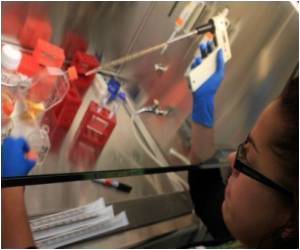
A team of Weizmann Institute scientists managed to trick the immune systems of mice into targeting one of the body's players in autoimmune processes, an enzyme known as MMP9.
Prof. Irit Sagi of the Biological Regulation Department and her research group have spent years looking for ways to home in on and block members of the matrix metalloproteinase (MMP) enzyme family.
These proteins cut through such support materials in our bodies as collagen, which makes them crucial for cellular mobilization, proliferation and wound healing, among other things.
But when some members of the family, especially MMP9, get out of control, they can aid and abet autoimmune disease and cancer metastasis.
Blocking these proteins might lead to effective treatments for a number of diseases.
Advertisement
The body normally produces its own MMP inhibitors, known as TIMPs, as part of the tight regulation program that keeps these enzymes in line. As opposed to the synthetic drugs, these work in a highly selective manner.
Advertisement
Dr. Netta Sela-Passwell began working on an alternative approach.he and Sagi decided that, rather than attempting to design a synthetic molecule to directly attack MMPs, they would try trick the immune system to create natural antibodies that target MMP-9 through immunization.
Just as immunization with a killed virus induces the immune system to create antibodies that then attack live viruses, an MMP immunization would trick the body into creating antibodies that block the enzyme at its active site.
Together with Prof. Abraham Shanzer of the Organic Chemistry Department, they created an artificial version of the metal zinc-histidine complex at the heart of the MMP9 active site.
They then injected these small, synthetic molecules into mice and afterward checked the mice's blood for signs of immune activity against the MMPs.
The antibodies they found, which they dubbed 'metallobodies,' were similar but not identical to TIMPS, and a detailed analysis of their atomic structure suggested they work in a similar way - reaching into the enzyme's cleft and blocking the active site.
As they hoped, when they had induced an inflammatory condition that mimics Crohn's disease in mice, the symptoms were prevented when mice were treated with metallobodies.
The study has been published in Nature Medicine.
Source-ANI













